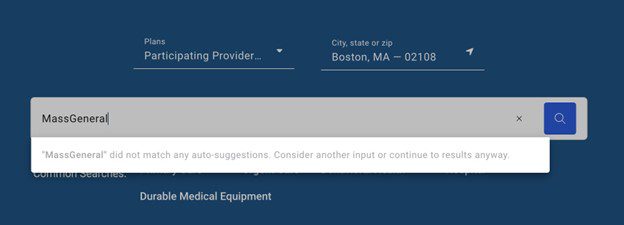Employer health plans are health insurance plans provided by employers to their employees as part of the benefits package. These plans typically cover medical, dental, and vision services, depending on the type of plan offered. Employer-sponsored health plans are generally more affordable for employees compared to individual policies because the employer shares the cost of premiums, making healthcare more accessible.
Employers have several options when selecting a health insurance plan for their workforce. The types of employer health insurance plans include:
Why are employer health insurance plans often better than individual policies? Employer health plans generally have lower premiums and better coverage options due to the shared cost between the employer and employee. Additionally, employers can negotiate better group rates, offering comprehensive healthcare coverage that is more affordable compared to individual market plans.
Employer health insurance plans also typically offer tax advantages to both employers and employees. Employers can deduct health insurance premiums as a business expense, while employees often pay their share of premiums with pre-tax dollars, reducing their taxable income.
Offering a competitive employer health insurance plan helps small businesses attract and retain top talent. It shows that the employer cares about their employees' well-being, fostering a sense of loyalty and job satisfaction. Moreover, studies indicate that companies with good health benefits often experience increased productivity and reduced absenteeism.
Through committed actions businesses can enhance the wellness of employees while advancing community health.
To enhance workforce well-being alongside community health improvement requires a holistic approach to physical, mental, and emotional health. Businesses which adopt this strategy generate positive outcomes for their workforce and neighboring communities.
Comprehensive Health Resources
The creation of a complete resource collection remains essential. This can be achieved by:
Expanding Access to Mental Health Care: Companies must provide their employees with access to high-quality mental health services. The expansion of access to mental health care services should incorporate telehealth methods along with adaptable work schedules and affordable care options.
Integrated Health Solutions: Develop programs that simultaneously target physical wellness alongside mental and emotional well-being. Integrated care systems deliver superior results when they approach patient treatment through a holistic perspective.
Promote Inclusivity and Equity: Provide individualized support to acknowledge and honor each employee's distinct experiences. The workplace becomes more equitable and ensures every employee feels appreciated.
When choosing employer health care plans, it's important to understand the different coverage options available, such as:
Businesses need to understand the special health insurance requirements that suit their specific circumstances.
Unique Health Insurance Requirements for Businesses
Every business requires its own specific health insurance solution which is influenced by its industry sector, size of its workforce and the characteristics of its employees. Businesses need to evaluate several factors when choosing health insurance plans.
Workforce Demographics: Employees who are younger tend to value wellness programs and older employees prefer comprehensive coverage for chronic conditions.
Industry-Specific Needs: Construction businesses need stronger insurance plans because of their higher risk profile while tech firms prioritize mental health benefits to support employee well-being.
Cost Management: Balancing affordable premiums with extensive benefits. Businesses look for insurance plans that reduce pharmacy costs or use big provider networks to manage their spendings.
Employee Experience: When businesses provide easy access to healthcare services along with a streamlined claims process they increase both employee satisfaction and productivity.
Flexibility and Customization: Businesses require customizable plans that provide different levels of coverage and optional add-ons to address the varying needs of their employees.
When businesses concentrate on specific needs they create customized health insurance solutions that meet employer and employee needs while encouraging wellness and managing expenses.
How much do benefits cost an employer? The cost of providing health insurance varies significantly based on the size of the company, the type of plan, and how much the employer contributes. On average, employers pay about 70-80% of the premiums for employee-only coverage and 50-60% for family coverage. According to the KFF 2024 Employer Health Benefits Survey, the average annual premium was $8,951 for single coverage and $25,572 for family coverage.
Some employers opt for self-funded employer health plans where they take on the financial risk of providing health benefits. Self-insured plans are more common in larger companies, but small businesses can also benefit if they have a healthy workforce and can manage the financial risk.
A significant challenge for small businesses is the rising cost of healthcare premiums. According to the KFF Employer Health Benefits Survey, premiums have increased by approximately 22% over the past five years (2021-2025 preliminary 5-year increase data appear to be around 30%). This makes it difficult for small businesses to offer competitive benefits without straining their budgets.
Can an employer change health plans mid-year? Generally, employers can change insurance carriers any time throughout the year. In practice, employers tend to change at the existing plan's renewal. If changing mid-year, the employer should comply with IRS Section 125 regulations and communicate clearly with employees.
Employees may not fully understand the details of their health insurance plans, which can lead to confusion and underutilization of benefits. Employers should provide clear communication and resources to help employees make informed decisions about their healthcare.
Which methods can organizations implement to build a health-focused workplace environment?
To create a workplace culture of health organizations need to focus on technical wellness solutions as well as human healthcare elements. Here’s how organizations can effectively achieve this:
Enhance Access to Mental Health Care: Work with insurance providers to deliver mental health services with affordable and extensive coverage options.
Organizations should partner with BetterHelp and Talkspace to make it easier for employees to connect with certified mental health specialists.
Adopt a Holistic Health Strategy: Combine programs that address mental health with those that improve physical fitness and emotional well-being to promote full employee wellness. Health specialists should partner together to provide complete care for employees which improves value-driven healthcare services.
Combat Mental Health Stigma:Organize educational workshops and seminars to inform about mental health disorders and to eliminate stereotypes. Organize events with guest speakers who share their mental health experiences to help normalize conversations around this important topic.
Promote Equity and Individual Support:Personalized health plans should be funded to address each employee's unique healthcare requirements. Employees from diverse backgrounds must have equal access to wellness resources which allows them to receive customized support.
Broaden Behavioral Health Benefits:Extend wellness program offerings by adding yoga sessions, fitness competitions, and mindfulness seminars. Work with digital platforms such as Headspace and Calm to embed mental health practices into everyday employee routines.
A workplace health culture that supports employee well-being results in improved productivity and employee loyalty while establishing wellness as a fundamental element of organizational achievement.
Employer-sponsored health insurance plans typically have several consistent features:
When selecting the best employer health insurance plans, consider factors such as:
Small businesses should consider small employer health plans that provide adequate coverage while remaining budget-friendly. Many insurers offer specific plans designed for small businesses with fewer than 50 employees, which can include tax incentives and streamlined administrative processes.
Level funded plans provide a good alternative to self-funded plans by guaranteeing all medical claims are covered. However, the level funded plan is not guaranteed to continue to be offered at renewal if medical claims are too high.
PEO4YOU stands out from traditional Professional Employer Organizations (PEOs) because it does not require changes in payroll and workers' compensation insurance or medical underwriting with rates not reliant on age or family size, unlike most other PEOs.
Additionally, PEO4YOU offers access to the Blue Cross Blue Shield (BCBS) PPO network, the largest provider network in the U.S., with an estimated 1.7 million providers and over 200,000 mental health practitioners. This extensive network ensures that employees have access to quality care nationwide.
Consider a small marketing agency with 20 employees. The owner decides to offer an employer-sponsored health insurance plan to attract top talent and reduce turnover. After comparing options, the agency chooses a PPO plan that offers flexibility for employees who prefer choosing their healthcare providers. The business shares 75% of the premium costs, making it an attractive offer for employees.
Another example involves a small IT consulting firm with 15 employees, including several families and a higher average employee age. The company initially considered a traditional PEO, but the rates were significantly higher due to the family-heavy demographic and age factors. By switching to PEO4YOU, the business was able to secure competitive rates and provide comprehensive benefits through the BCBS PPO network. The company also benefited from the predictable renewal rates, which were not dependent on its own claims history, making budgeting for healthcare costs more manageable.
Employer health plans play a crucial role in employee satisfaction and retention, making them an essential consideration for small businesses, independent contractors, and sole proprietors. By understanding the various types of employer health insurance plans, evaluating costs, and comparing options, business owners can make informed decisions that benefit both their employees and their bottom line.
Providing health insurance not only makes your company more competitive but also fosters a healthier, more productive workforce. Whether opting for a fully insured plan, a self-funded employer health plan, or exploring small employer health plans, the key is to find a balance between comprehensive coverage and affordability.
If you're considering offering health insurance or reassessing your current plan, start by evaluating the needs of your workforce and seeking professional guidance to select the best plan that fits your budget.
Recent Posts
Get In Touch— We’re available 24/7
"*" indicates required fields
“We respect your privacy. Your contact information will be used solely for the purpose of responding to your inquiry and will not be shared with third parties.”
Click To Open Modal
Get In Touch— We’re available 24/7
"*" indicates required fields
“We respect your privacy. Your contact information will be used solely for the purpose of responding to your inquiry and will not be shared with third parties.”
Thanks!
We will be in touch soon.
If you're looking to book a consultation now
Affordable health and benefits plans for small businesses, freelancers, and independent contractors.



Copyright © 2026. Peo4you. All rights reserved.











